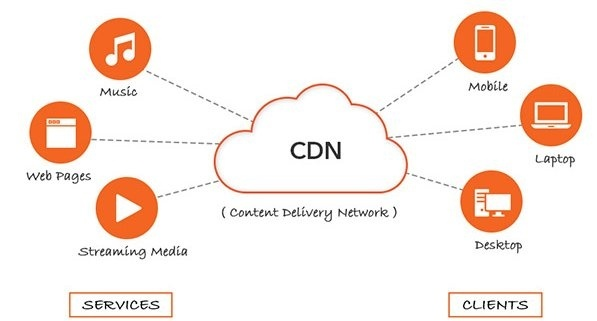What is CDN Service?

The Content Delivery Network (CDN) market is growing. Still, so many website owners and business decision-makers don’t know what the buzz is about. To prove it, one trending search phrase on Google is, “what is CDN service?” So for this article, we’re going to answer just that!
Fundamentally, CDNs guarantee enhanced web content delivery. The only primary difference among CDN providers is the kind of content they specialize in (static and/or dynamic) and their distribution reach.
Defining CDN
To answer the question, “what is CDN service?” it’s important to know what CDNs are first. To begin, they have geographically scattered servers that empower website performance by evenly and efficiently distributing web content to end-users. Because web content generally comes from web host origins, CDNs bring data closer to end-users. This hastens to load speed for users because they consume media and content from a variety of servers and not from the host origin alone. These servers cache content such as images, HTML files, video, applications, and audio. By bridging the physical gap between end-users and web content, CDNs empower website owners to publish their data much easier. That being the case, CDNs also allow website owners to better manage their bandwidth costs and consumption.
The Process Involved in Content Delivery Network Service
As mentioned above, CDNs allow for faster streaming and premium browsing as web content is ushered by servers that are proximally nearer them. In other words, when users visit websites and press on clickables (pictures, videos, blogs), they obtain content from their edge servers—the server that’s nearest them.
For instance, say your website is based in Singapore, but you have a steady digital market in Frankfurt and Seattle. If your Content Delivery Network (CDN) provider has Points of Presence in those areas, then they receive your site data from those servers and your origin host in Sydney. This results in improved application performance, speedier web page loading, and a skyrocketing surge in user satisfaction.
Networks
More than 50% of the internet is managed by clusters and groups of CDNs. Interestingly, that figure continues to grow even as we write this. Businesses are growing and expanding their audience. Entrepreneurs are breaking boundaries by entering regions, cultures, and groups of people they couldn’t have otherwise been exposed to on a physical level.
Initially, CDNs were built to reduce your loading page (a.k.a latency). Now, CDNs do more than just that as they can also customize the kind of data they extend to visitors per region. A prime example of this is Facebook. For instance, if you create an account in Seoul, the language you’ll see on your computer screen or mobile app is Korean by default. That’s because Facebook in that area is designed to automatically translate the language to better suit their market. Netflix does that, too, in light of licensing concerns.
Another example of technology that uses CDNs is smartphone applications. From banking apps to gaming apps, the need to deliver quick content and update patches is crucial as these industries rely on online speed to deliver their services.
There’s a vast array of benefits site owners get from CDNs. One clearly speeds. But is that all? Is speed really all that essential when you have a website? Without a doubt, the answer is most definitely yes. But how does speed translate to anything else?
Plenty of studies have linked slow-loading websites to a decline in sales, too. The slower a website is, the higher the chances of users not lingering on a site at all. In fact, studies have pointed out that almost half of the internet users close a tab altogether if a web page doesn’t completely load in 2 seconds!
Speed aside, reliable availability is another feature CDNs can guarantee users. When the web host origin is down, servers that have stored the site’s content in advance still get to distribute them to users. This becomes especially useful for e-commerce websites, government websites, and digital publishing. Because these industries rely on the internet to get their services across, these kinds of websites must see to it that they don’t fail to deliver.
Overall, a CDN benefits websites that generate a good amount of traffic. CDNs are also perfect for websites that have a sturdy following in multiple regions. When shopping for the best Content Delivery Network (CDN) provider, consider distribution reach, pricing, and customer service. All three are integral components that contribute to, not just the quality of a CDN, but also the success of your business website.
Does the question, “what is CDN service?” still ring loudly in your head? You'll know the answer to that first-hand when you click here for a free trial with us!
Power-up your Content Delivery
30 Day Free Trial Cancel Anytime